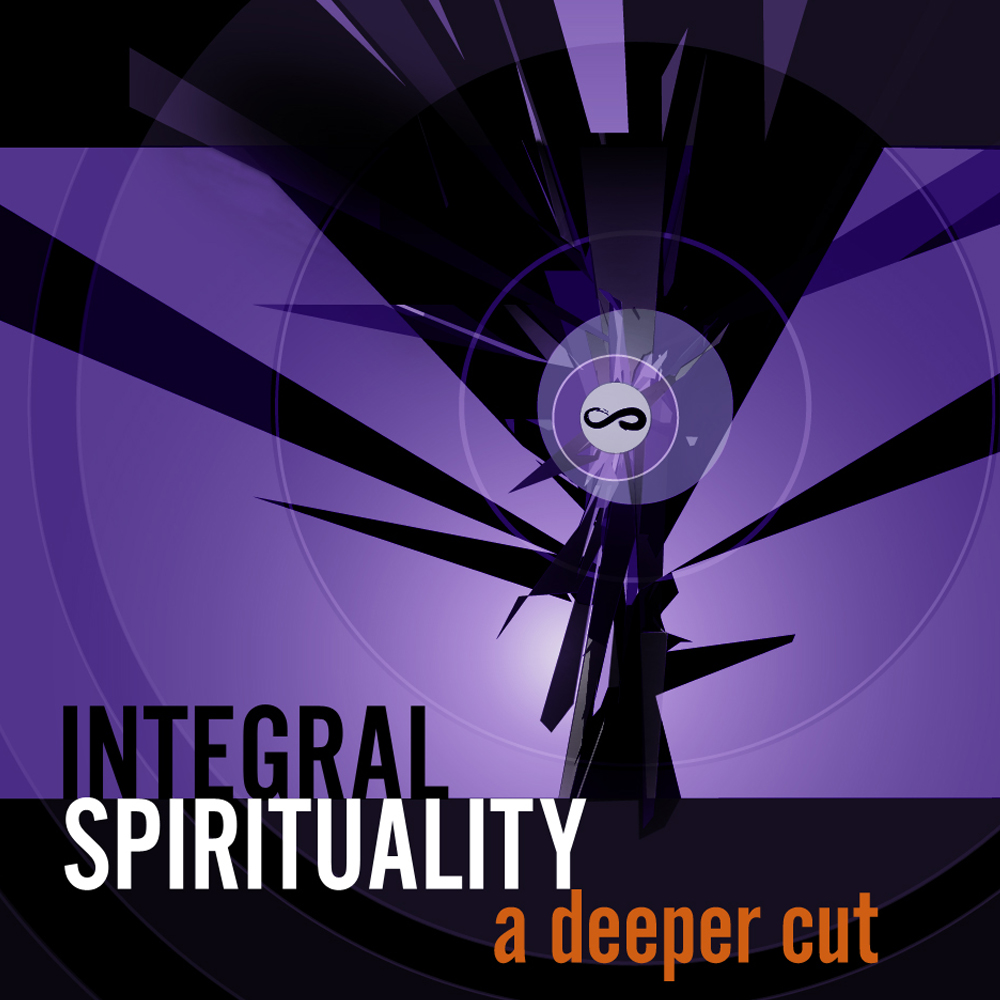The eight zones refer to the eight dimension-perspectives available to all human beings. They are the eight primordial or indigenous perspectives (and ontological zones) available to sentient beings. Methodologies associated with the eight zones include:
Zone 1 (the inside of the Upper-Left): Phenomenology, introspection, contemplation, and/or meditation
Zone 2 (the outside of the Upper-Left): Developmental structuralism
Zone 3 (the inside of the Lower-Left): Hermeneutics, collaborative inquiry, and/or participatory epistemology
Zone 4 (the outside of the Lower-Left): Cultural anthropology, ethnomethodology, culturology, archaeology, and/or genealogy
Zone 5: (the inside of the Upper-Right): Biological phenomenology, cognitive neurophysiology, cognitive science in general, and/or autopoiesis
Zone 6 (the outside of the Upper-Right): Behaviorism, positivism, and/or empiricism
Zone 7 (the inside of the Lower-Right): Social autopoiesis and/or game theory
Zone 8: (the outside of the Lower-Right): Systems theory, component systems theory, chaos and complexity theories, and/or network science
Each of these eight perspectives has an inherent methodology or mode of inquiry, or ways that sentient beings touch other sentient beings by enacting those zones.
In this excerpt from Integral Spirituality: A Deeper Cut, Dennis Wittrock asks whether there are structural preconditions for the enacting of certain zones, whether zones unfold with respect to increasing cognitive development, whether certain zones were even available at earlier times in history, and whether there are “premodern,” “modern,” and “postmodern” zones.
Integral Spirituality: A Deeper Cut
 Some of the most important and insightful conversations in the world.
Some of the most important and insightful conversations in the world.
In 2006 Ken Wilber published his seminal book Integral Spirituality: A Startling New Role for Religion in the Modern and Postmodern World. This book represents the culmination of more than three decades of Integral theory and practice, suggesting a theory of spirituality that honors the truths of modernity and postmodernity—including the revolutions in science and culture, while incorporating the essential insights of the world’s religious traditions. Integral Spirituality demonstrates how today’s spirituality must combine the insights of the East with the discoveries of the West, paving the way for a radical new role for the world’s religions.
Featuring the most cutting-edge theory, the most intimate stories, and the most meaningful applications of Integral thought to our lives and to our world, you will not find spiritual conversations as intelligent and as sophisticated anywhere else in the world.
A Deeper Cut includes 94 audio lessons, separated into 14 chapters — a staggering 40 hours of material!
| Module 1 | Introduction: The Integral Approach |
|---|---|
| Unit 1 | Ken’s Introduction |
| Unit 2 | Markers of Development |
| Unit 3 | Full Enlightenment |
| Unit 4 | Uniting Multiple Disciplines |
| Unit 5 | Misinterpreting States and Stages |
| Module 2 | Integral Methodological Pluralism |
| Unit 1 | Quadrants and the "Big Three" |
| Unit 2 | 4th-, 5th-, and 6th-Person Perspectives |
| Unit 3 | Kosmic Address and the Pauli Exclusion Principle |
| Unit 4 | Spiritual Practice and Cultural Embedment |
| Module 3 | Stages of Consciousness |
| Unit 1 | Ken's Introduction |
| Unit 2 | Privileging Those Without Privilege |
| Unit 3 | Moving Multiple Lines |
| Unit 4 | The Role of Will |
| Unit 5 | Spheres of Existence |
| Module 4 | States of Consciousness |
| Unit 1 | Masculine and Feminine Paths to Nonduality |
| Unit 2 | Structuralist and Hermeneutical Approaches to Meaning |
| Unit 3 | Taking Perspectives on Perspectives |
| Unit 4 | The Mysterious Presence |
| Module 5 | States and Stages |
| Unit 1 | Ken’s Introduction |
| Unit 2 | Skillful Communication |
| Unit 3 | The Relationship Between States and Stages |
| Unit 4 | Peak and Plateau Experiences |
| Unit 5 | The Darth Vader Move |
| Module 6 | Boomeritis Buddhism |
| Unit 1 | Ken’s Introduction |
| Unit 2 | The Integrity of Emptiness |
| Unit 3 | Worldcentric Buddhism |
| Unit 4 | Gauging Development |
| Unit 5 | Buddhism and Postmodernity |
| Module 7 | The Shadow and the Disowned Self |
| Unit 1 | Ken’s Introduction |
| Unit 2 | Shadows and Dissociation |
| Unit 3 | Practicing Ethics |
| Unit 4 | Shadow Hugging |
| Unit 5 | Approaching the Authentic Self |
| Unit 6 | Is 3-2-1 Too Superficial? |
| Unit 7 | The Shadows of Shadow-Work |
| Unit 8 | The Collective Shadow |
| Module 8 | A Miracle Called “We” |
| Unit 1 | Ken’s Introduction |
| Unit 2 | Relating With Amber |
| Unit 3 | A "We" in Time |
| Unit 4 | Creating Intentional Communities |
| Unit 5 | Skillful Means and Mixed Altitudes |
| Unit 6 | Zones of Emergence |
| Module 9 | The World of the Terribly Obvious |
| Unit 1 | Ken's Introduction |
| Unit 2 | The Mirror of Nature |
| Unit 3 | Evolution and the Bodhisattva Vow |
| Unit 4 | Mental Perspectives vs. Soul Perspectives |
| Unit 5 | Art and the Terribly Obvious |
| Module 10 | The Conveyor Belt |
| Unit 1 | Kenʼs Introduction |
| Unit 2 | Integral Sunday School |
| Unit 3 | Gaps in the Conveyor Belt |
| Unit 4 | The Energetics of Awakening |
| Unit 5 | How to Self-Assess? |
| Unit 6 | What About Race and Racism? |
| Unit 7 | Applying the Conveyor Belt to Organizational Development |
| Module 11 | Integral Life Practice |
| Unit 1 | The Difference Between ITP and ILP |
| Unit 2 | Bringing ILP to Walmart |
| Unit 3 | Selfless Service as Practice |
| Unit 4 | Personal Will, Unique Will, and Enlightenment |
| Module 12 | Appendix I: From the Great Chain of Being to Postmodernism in 3 Easy Steps |
| Unit 1 | Ken’s Introduction |
| Unit 2 | The Cutting Edge of Physical Evolution |
| Unit 3 | What’s the Evidence for Involution? |
| Unit 4 | Involution and Practice |
| Unit 5 | The Future of Consciousness, Energy, and Eco-systems |
| Module 13 | Appendix II: Integral Post-Metaphysics |
| Unit 1 | Why Is Enlightenment Important? |
| Unit 2 | Why the Kosmos? |
| Unit 3 | Metaphysical Baggage |
| Unit 4 | The Integral Daemon |
| Unit 5 | The Evolution of Perspective |
| Unit 6 | Constructing Reality |
| Unit 7 | State-Stages and Kosmic Grooves |
| Unit 8 | Integral Calculus, Integral Perspectives |
| Unit 9 | The Science of Spirit |
| Unit 10 | Meaning, Enactment, and God |
| Unit 11 | Quadrants and the Myth of the Given |
| Unit 12 | A Post-Metaphysical Approach to Synchronicity |
| Module 14 | Appendix III: The Myth of the Given Lives On |
| Unit 1 | Ken’s Introduction: Reverse-Engineering the Kosmos |
| Unit 2 | New Thought, New Age, and Beyond |
| Unit 3 | Technology and Consciousness |
| Unit 4 | Ancient Practice, New Understanding |
| Unit 5 | Is the Future Spinning Out of Control? |
| Unit 6 | After Enlightenment, What’s the Point? |
| Unit 7 | The Finger Pointing to the Moon |
| Unit 8 | Beyond the Fourth |
| Unit 9 | Involution, as Never Before Seen |
| Unit 10 | Arhats and Bodhisattvas |
| Unit 11 | Eternity in Love |
| Unit 12 | The Self-Liberating Nature of Reality |
| Unit 13 | Perspectives and Practice |
| Unit 14 | The Three Faces, From Altitude |
| Unit 15 | Three Truths |
| Unit 16 | To Get a Universe Going |
Related Media
From the Big Bang to the Eight Primordial Perspectives
Ken Wilber and Corey deVos
Ken Wilber offers a stunning introduction to the major components of Integral theory and practice — a guided tour that takes us from the very first forms to emerge in the universe, all the way to the eight primordial perspectives that all of our knowledge is constructed from.
Integral Critical Theory: The 8 Zones of Racism
Corey deVos
Ken and Corey continue their discussion of the 8 critical zones of integral metatheory, and apply them to the ongoing cultural conversation taking place around race, racism, and other kinds of bigotry that we continue to see in the world. This discussion is a great opportunity to not only learn more about these 8 primordial perspectives that are available to us, but also to see how they can be applied to social and cultural challenges and “wicked problems” such as these.
Free Email Course: Build Your Integral Life
We created 24 free lessons that can help you learn the Integrative Mindset needed to thrive in the rapidly-evolving world of the 21st century. Enter your email to start the course:
About Ken Wilber
Ken Wilber is a preeminent scholar of the Integral stage of human development. He is an internationally acknowledged leader, founder of Integral Institute, and co-founder of Integral Life. Ken is the originator of arguably the first truly comprehensive or integrative world philosophy, aptly named “Integral Theory”.



